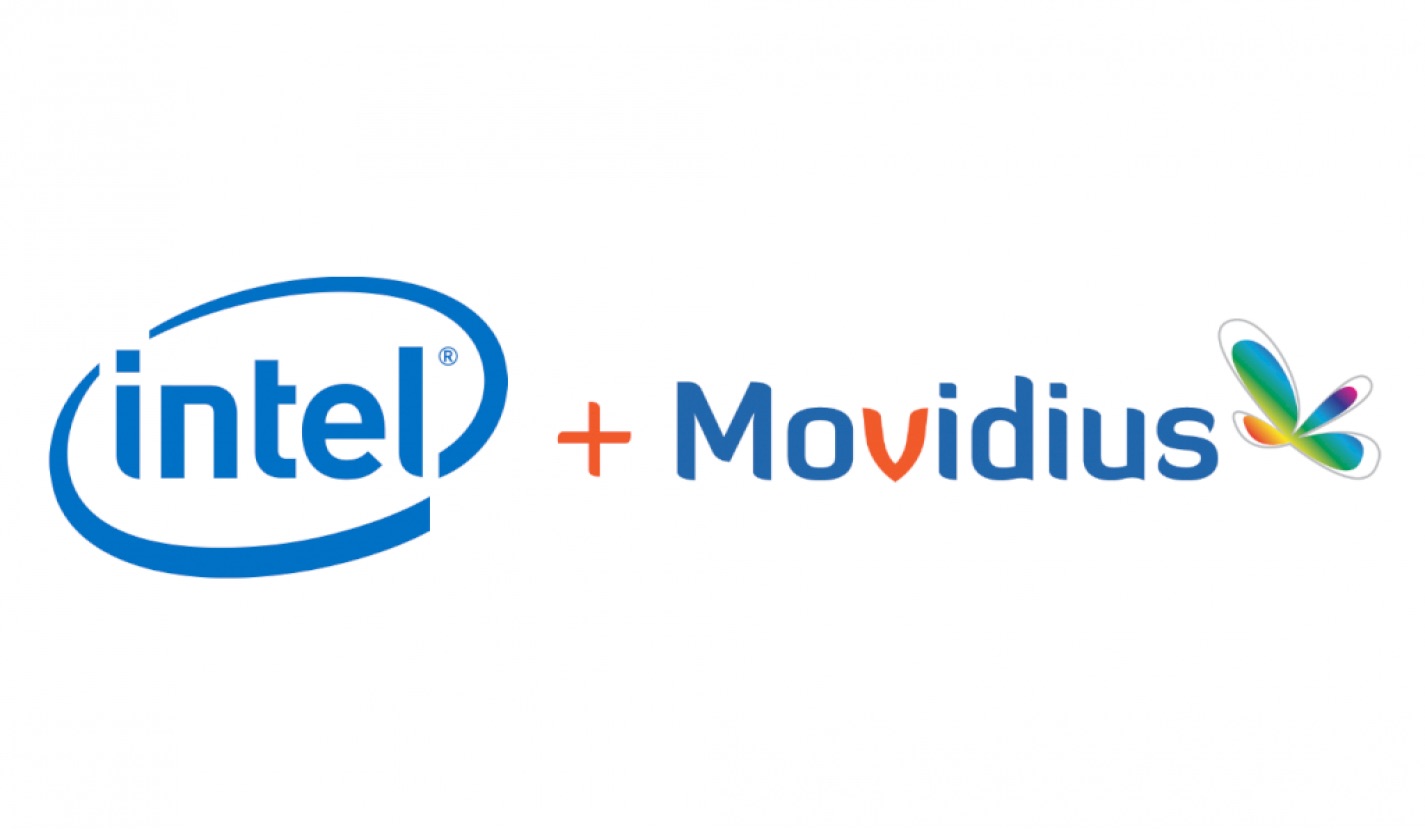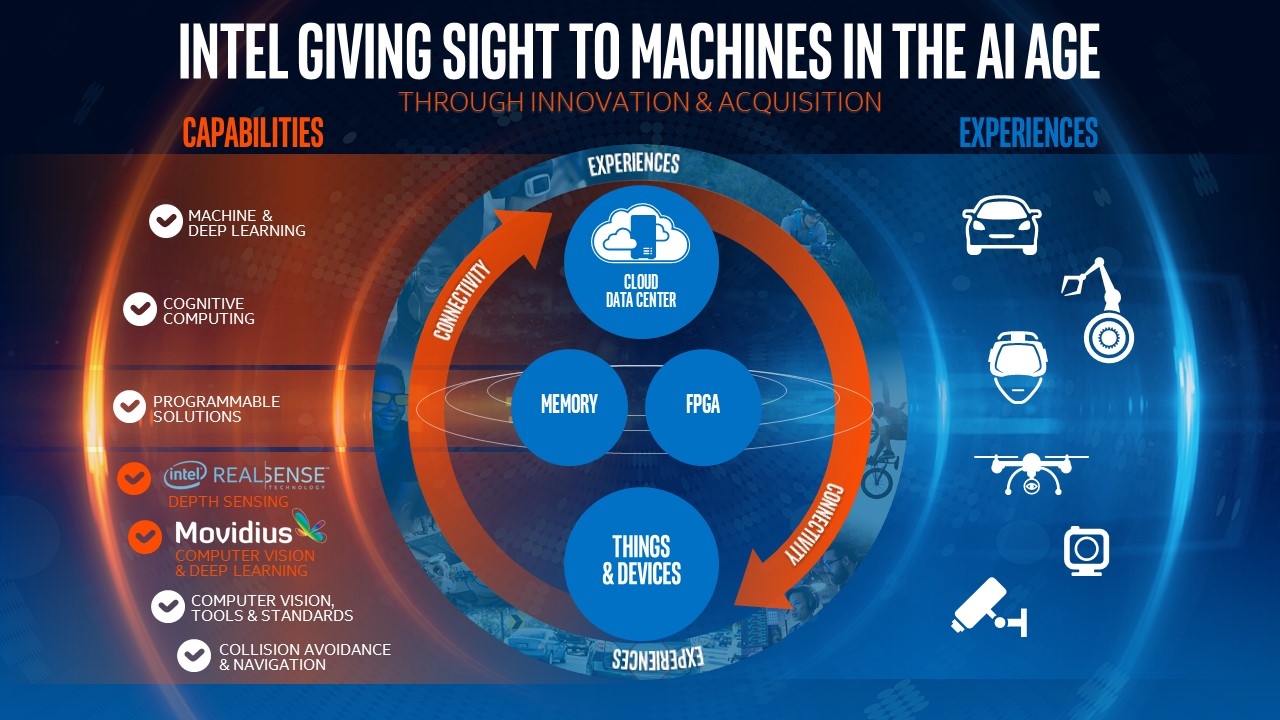Intel's RealSense Gets Smarter With Movidius Acquisition (Updated)
Throughout the year, we’ve seen Movidius poke its head up time and again. It announced that it was partnering with Google on local/cloud deep learning, the company's Myriad 2 visual processing unit (VPU) landed on FLIR Systems’ Boson thermal imaging device, and there was mysterious with Lenovo on an unnamed virtual reality project.
But by far the biggest news around Movidius is that Intel is acquiring the company.
According to the announcement penned by Josh Walden, Intel’s senior vice president general manager of the company’s New Technology Group, the main reason for the acquisition was so that it could use Myriad 2 VPU in conjunction with its RealSense camera technology.
“...As devices become smarter and more distributed, we recognize that specific System on a Chip (SoC) attributes will be paramount to giving human-like sight to the 50 billion connected devices that are projected by 2020… With Movidius, Intel gains low-power, high-performance SoC platforms for accelerating computer vision applications. Additionally, this acquisition brings algorithms tuned for deep learning, depth processing, navigation and mapping, and natural interactions, as well as broad expertise in embedded computer vision and machine intelligence. Movidius’ technology optimizes, enhances and brings RealSense capabilities to fruition.”
In addition, the company also believes that Movidius’ advancements in the field could help in other parts of its smart vision plans. These include the automotive sector, virtual and augmented realities, security cameras and drones. Of course, some of these areas are already familiar ground for Movidius.
The company is the latest grab by Intel in its pursuit of creating better “learning devices.” Last month, the company obtained Nervana Systems, which it said was a leader in the deep learning field, to work with the engineers that created the Intel Xeon and Xeon Phi processors. Last October, Intel also acquired Saffron due to its cognitive computing assets in order to bolster its efforts in the cyber security and healthcare fields, just to name a few.
Even though it’s a newcomer in Intel’s ranks, the Movidius team will hit the ground running. In fact, it already has an idea of its future plans under the new owners.
Get Tom's Hardware's best news and in-depth reviews, straight to your inbox.
“In the years ahead, we’ll see new types of autonomous machines with more advanced capabilities as we make progress on one of the most difficult challenges of AI: getting our devices not just to see, but also to think,” said Movidius CEO Remi El-Ouazzanne. “Movidius has been attacking this challenge at the device level - combining advanced algorithms with dedicated low-power hardware. At Intel, we’ll be part of a team that is attacking this challenge from the cloud, through the network and on the device. This is very exciting.”
Further details on the acquisition weren’t available, but we should know more information in the near future.
Update, 9/7/16, 2:15pm PT: Intel confirmed that the deal is expected to close late Q3 or early Q4 this year. The Movidius crew will join Intel's Perceptual Computing Group, which is part of the Josh Walden-led New Technology Group.
Rexly Peñaflorida is a freelance writer for Tom's Hardware covering topics such as computer hardware, video games, and general technology news.

